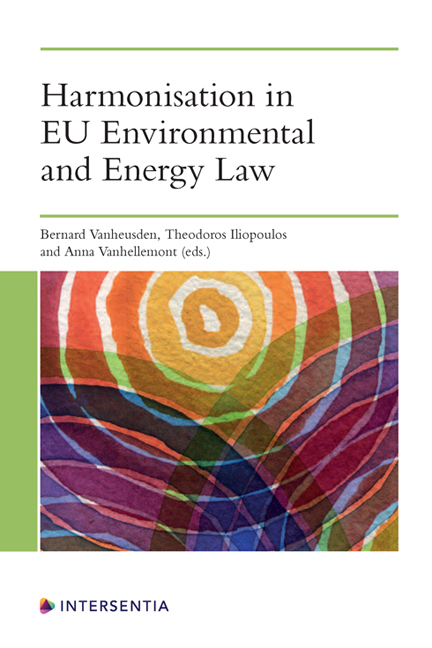Environmental Protection and Symbolic Value of Harmonising Environmental Laws: Is Further Harmonisation the Solution?
Published online by Cambridge University Press: 26 May 2022
Summary
INTRODUCTION
For a long time, but especially and more rapidly so during the recent years, the environment and the natural resources of our planet have been exploited and polluted by both private individuals and corporate entities. The consequence of such behaviour is that serious challenges, such as climate change, various forms of pollution, as well as unsustainable consumption and production, threaten people’s health, as well as the very survival of the flora and fauna worldwide.
In such a context, international and European environmental policies and laws aimed at protecting the environment are becoming more and more important. A high level of protection of the environment has become a primary objective of the EU. To that extent, several European acts have been adopted. In particular, to resolve the original fragmentation occasioned by the inclusion of environmental provisions into different pieces of sectoral legislation protecting different interests, such as water, soil or air, harmonisation has played an important role in dealing with environmental protection in a more integrated manner.
Furthermore, the number of actors competent to monitor the implementation of environmental laws, as well as the amount of environmental compliance networks composed of European environmental inspectors, police officers, prosecutors, judges, auditors and heads of environmental protection agencies, has considerably increased in recent years. Even mechanisms designed to enhance compliance with environmental legislation and oversee the correct application of European environmental legislation at the national level have been adopted.
However, air, water and soil pollution has not significantly diminished, the effects of climate change are in the public eye and the problem of waste disposal has not yet been solved in many countries.
From the foregoing, it may be deduced that the problem does not stem from the lack of harmonised environmental rules or from the absence of actors responsible for implementing and enforcing environmental legislation, nor does it stem from the lack of networks allowing those actors to communicate between the most adequate ways of enforcing environmental obligations.
The reasons for the inadequate protection of the environment must thus be sought elsewhere. It is the system of environmental governance, particularly with regard to mechanisms ensuring access to justice, which has to be rethought.
- Type
- Chapter
- Information
- Harmonisation in EU Environmental and Energy Law , pp. 129 - 144Publisher: IntersentiaPrint publication year: 2022



